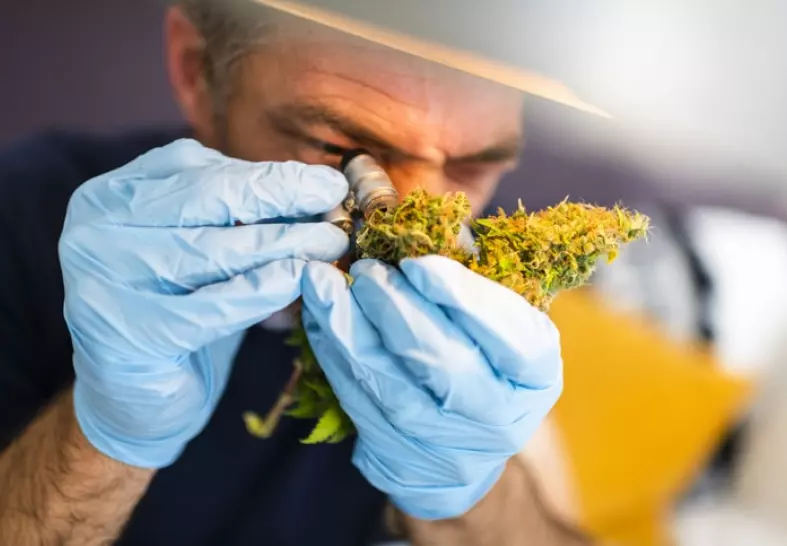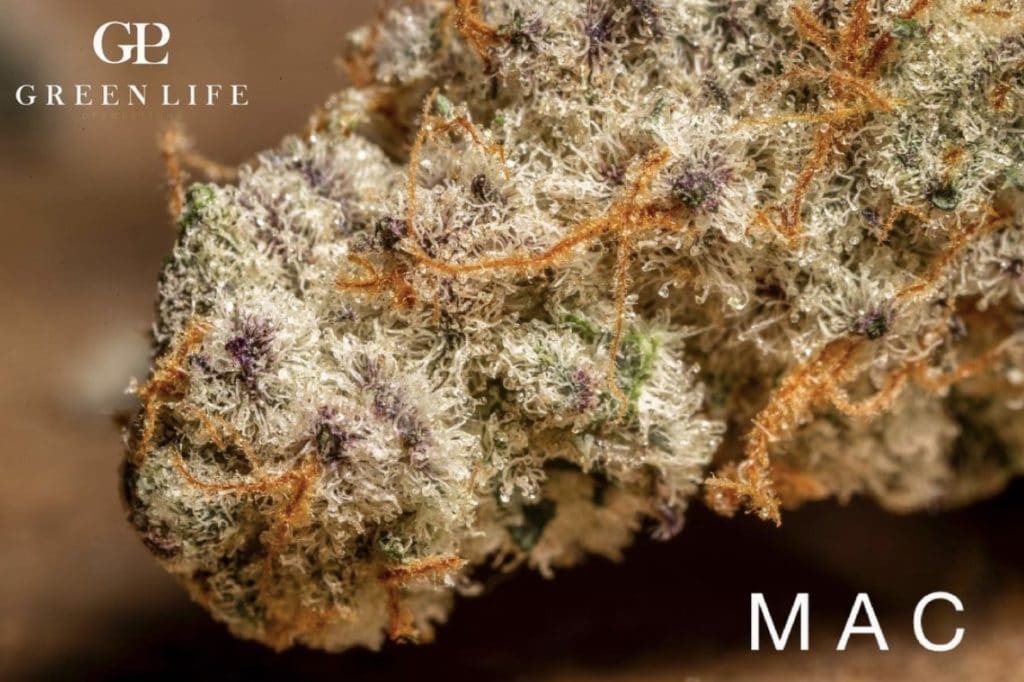Today's environmental and health-conscious consumers want organic cannabis just like we want organic everything else, that's why you buy your tomatoes from Bezos Foods for eight bucks a bag or whatever, I don't know, I don't buy fruit (other than bags of oranges for sexy times, like everyone else. Why are you looking at me like that?) But I do buy lots of weed and let the Gentleman tell you, truly organic ganja is rarer than finding boudoir partners open to some light orange-play, no matter what your dealer or dispensary might say. We'll discuss the reasons why that is as we look at industry's progress towards growing organic marijuana.
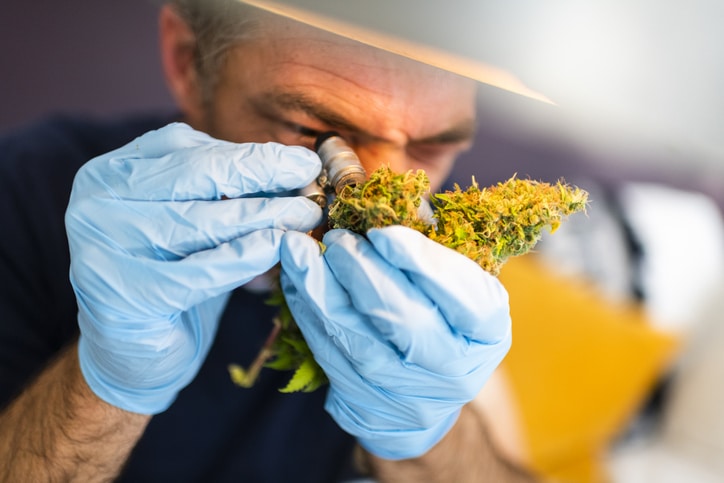
Why Do People Like Organic Bud?
Growing organic marijuana can be challenging but there are good reasons it may be worth the upfront investment. For many, it starts with the known (and unknown) health risks that come from the chemicals used to make growing easier. There hasn’t been much research into how those chemicals might be hazardous for weed consumers, but given what we’ve learned about lighting up chemically treated tobacco plants, smoking organic bud could avoid a host of potential health problems.
For others, choosing organic weed comes down to a difference in the smells, flavors, and effects. Even though conventionally-grown weed can be exceptionally potent and full of flavor, most growers will tell you that cannabis expresses it’s most unique characteristics when grown organically. Those looking for more variety and complexity in their smoke may find that organic cannabis provides an array of smells and flavors that dazzle the senses, much like a fine wine. Even smokers that could care less about ‘refined palates’ have to admit there’s a mouth-watering richness and smoothness that you only find with organic bud.
Now, all that sounds fine and dandy, but there’s still a problem. How do we know if the weed we’re shopping for is organic or not?
What Is Organic Weed, Exactly?
Every year we hear more and more about organic marijuana, but not enough about what “organic” weed really is. A lot of people assume it means “not sprayed with pesticides”, but there’s a bit more to it.
For farms growing traditional crops like carrots and tomatoes, being “organic” means paying (up to about $50,000) for a certification agency to determine whether their methods adhere to rules laid out by the U.S. Department of Agriculture (USDA) in the National Organic Program (NOP). For example, all of the fertilizers and pesticides at an organic farm have to be approved by the Organic Materials Review Institute (OMRI). If the inspectors don’t find any violations of the NOP rules, you get to use the snazzy USDA Organic sticker on your products!
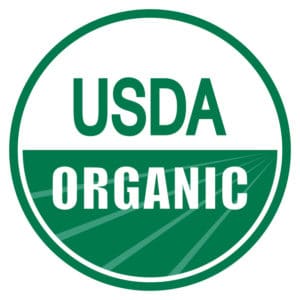
Sadly, federal law means that USDA inspectors are still being total squares about organic cannabis growing and weed farmers can’t get organically certified! Not cool man! That means it’s hard to say what organic weed is or isn’t because there aren’t any rules that we’ve all agreed to. Sticking to the USDA’s NOP guidelines is a start, but that whole framework is designed for food products which legally must be washed off before they're consumed. Taking unwashed herbs and smoking them in a pipe carries a whole different set of concerns and potential problems that aren’t addressed by the NOP.
Shoot, boss, we're getting nowhere fast! There’s got to be some sort of way for cannabis consumers to know what they’re smoking, right?
Certifications for Growing Cannabis Organically
Federal law has left the cannabis industry without much guidance on what organic marijuana actually is, but this is weed, right? Isn’t there a more “grassroots” way to determine what’s organic and what isn’t? Well, partner, I got good news and bad news. There ARE certification agencies that work with cannabis farmers, yes, but very few, and may lack staff with the specialized skills and experience to conduct a diligent agricultural inspection (there’s a reason USDA inspections are $50,000!)
An agency called Certified Kind stands out as the exception. It’s led by Andrew Black, an expert in organic certifications that has spent decades inspecting and consulting for farms across North America and Europe. Their list of rules for certified farms is fifty pages long but includes their permitted list of organic pesticides and fertilizers as well as some ecological and social requirements.
If you’re lucky enough to live where you can find Certified Kind products, that’s awesome, power to the players. But even if you don't, programs like Certified Kind are still a good reference to help learn about what you’re really after. So, now you know about the rules, let's have ourselves a look at a few organic weed farms!
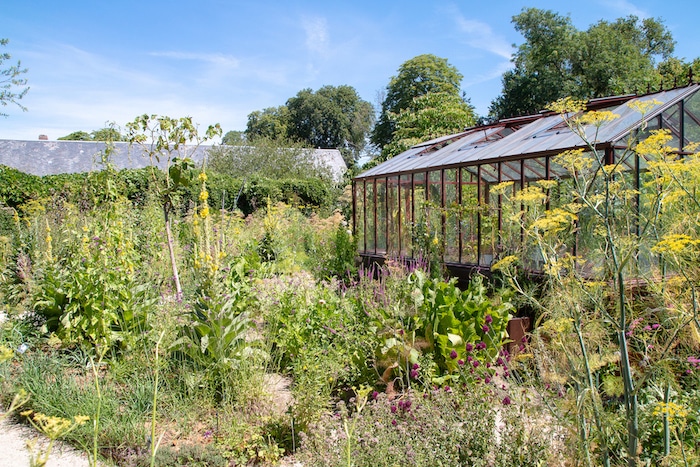
Organic Cannabis Growing Pioneers
Growing organic weed can be done a number of ways that includes small craft grows, outdoor farms, and even commercially licensed indoor facilities. Let's explore some of the methods that organic growers use to produce their herb!
Organic Weed & the Fruit-Drop Theory
As the number of home-grow states continues to grow, more and more people are thinking about how to grow organic weed for themselves. One of the funkiest, small-scale organic growers out there is Blu aka The Botanist. He’s known for sharing what’s called the ‘avocado technique’ or ‘fruit-drop theory’. Just take a look at his Instagram to see what we’re talking about!
The idea is that even indoor growers can utilize some of mother nature’s oldest tricks. Instead of trying to get liquid fertilizers or dry amendments to the plant roots, Blu fills the inside of a rotting fruit with what his plants need and places it on top of the soil. Bugs really love that! They come to feast and stay to breed like a proper Roman orgy of twisted antennae and pulsing thoraxes. That's what you were hoping for when you popped onto the internet today, a strong mental image of insect sex, right? The Gentleman aims to please. Anyway, when the party ends, the bugs return to the soil and poop out nutrients everywhere they go. That’s amazingly gross, worms, but thank you!
If you’re anywhere near Mount Desert Island in northeast Maine, go check out The Meristem, Blu’s new retail shop.
Indoor Organic Marijuana at Scale: Green Life Productions
Former MMA fighter Steve Cantwell runs Nevada’s Green Life Productions, a licensed indoor cannabis facility with over 30,000 square feet of canopy. They’re Certified Kind and certified DEM Pure, which means they meet some of the highest standards around for organic cannabis growing.
Much of an organic farmer’s time is spent cultivating healthy soil that allows the plants to grow themselves, so one of the biggest challenges with growing organic weed at commercial scale is propagation and transplanting. Instead of disturbing the ecology of their carefully crafted living soil beds by digging holes and tearing out rootballs, Green Life Productions simply places their teenage plants on top of the soil beds and allows the roots to grow down! Take a look at this video they posted.
What about all those weeds growing underneath the plants? Those help to improve soil structure, retain moisture, and even pump nutrients into the soil using photosynthesis!
If you scroll through their feed, you might be wondering why Green Life Productions can be seen growing all sorts of regular veggies next to his weed plants. That’s because different plants contribute their own unique benefit to the environment. Some even form beneficial relationships with weed! Ecologists believe that diversity is key, and we’re excited to watch Cantwell's progress growing weed naturally within the limitations of an indoor environment.
Growing Organic Marijuana Under the Sun: Dragonfly Earth Medicine
Trying to mimic nature under artificial light is a noble cause, but for an organic weed farmer to produce truly natural cannabis, some believe it must be grown by mankind's oldest enemy- the Sun! So what does it look like when we let Mother Nature take charge?
Another group that’s built up a reputation among cannabis farmers is Dragonfly Earth Medicine and their DEM Pure certification. They don’t offer the certification industry experience that Certified Kind does, but their farm skills tell their own story. Check out some of their weed plants on Instagram!
Wait a minute, where’s all the weed? When it comes to outdoor farms, organic marijuana benefits immensely from the plants and animals around it. While you can see some greenhouses that are used primarily for cannabis crops, they’re never alone. The abundance of flowers, herbs, and other companion plants all have a role to play in keeping the organic weed healthy and pest free. It's like some kind of...intricate environmental system of feedback loops. I know! We'll call it an ecosystem, a term I made up just now and take full credit for. Look, Ma, I'm a scientist!
The Best Growers Teach How to Grow Organic Weed
It’s clear that “going organic” doesn’t have a precise definition yet. And at the end of the day, organic weed isn’t always a readily available choice for most tokers. With many growers left without access to the certifications that prove their skills, it’s even harder to know who’s really growing organic weed and who just says they are. The most important thing, we think, is to choose brands that are open and honest about the growing methods they use. Even without providing picture or video proof, most organic cannabis enthusiasts are happy to talk about their methods because they take pride in their work. If an organic grower can’t tell you their own techniques for combating common growing challenges like powdery mildew and spider mites, they might not actually use any. Stay safe, psychonauts!
